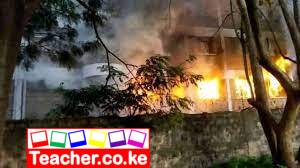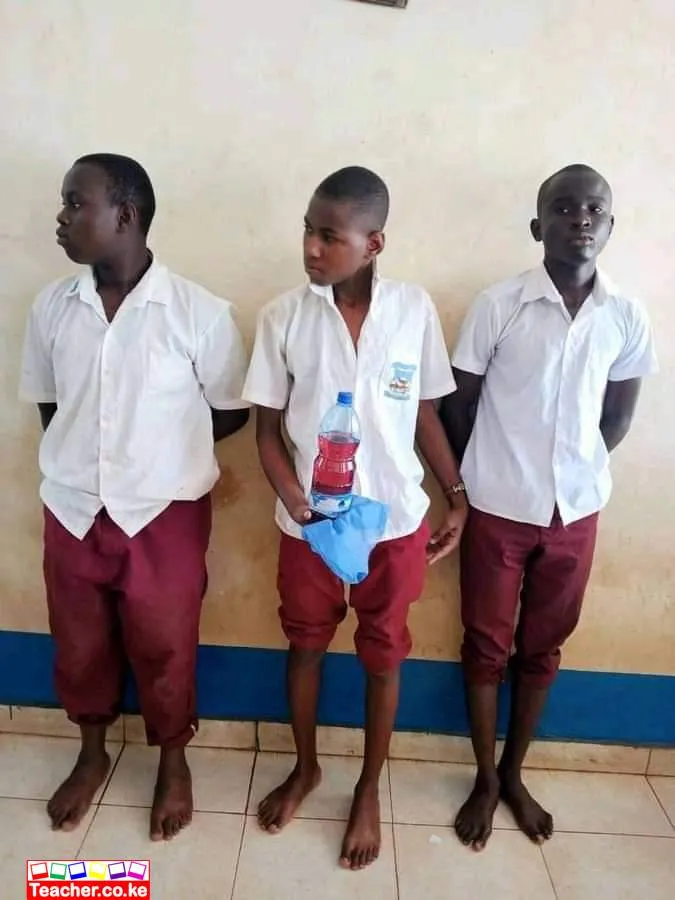The discussion on how to stop student unrest in secondary schools across the country is quite an intriguing one. Many views have been given on how to tackle the issue but none of these has not been tried before.
First and foremost, to understand the persistent issue of students’ unrest experienced in schools we have to start with the cause of strikes first. Who else to ask if not the students themselves? Well, most of the time the truth is far much more complicated.
Students have given various reasons among them stoppage of ‘entertainment’ (Chesamis Boys), poor meals in schools (Kirogo Boys, teacher misconduct i.e. teachers engaging in relationships with students or concealing incidences of the same (Lugulu Girls), and lack of mid-term breaks in the academic calendar among other reasons. However, what we can all agree on is that once there is a wave of schools being torched, it all gradually develops into an unhealthy and worrying trend among schools.
So how do you solve the students’ strike issue? There are many ways to kill the rat they say. Though it has to be said that there is varying difficulty with executing each one of them.
What is being shown on many TV stations is the opinion of various stakeholders of education and even members of the clergy have been questioned on the same. Some have asked corporal punishment to be allowed in schools while others like Nyatike Member of Parliament Tom Odege has called for a collective effort to curb the crisis. At the moment of writing this article, not many psychological specialists have been consulted over the issue.
However, it is notable that a psychological specialist had not been consulted at the moment o
The recent fixing introduction of the mid-term break has done little to address the crisis with schools still being torched in various parts of the country. A case of a school or schools being reported to have had a fire incident have become commonplace ever since.
The introduction of corporal punishment may not necessarily address the issue as it does not guarantee any success. Nobody knows whether it will work. Besides, learners of this era might not respond to corporal punishment the same way learners of past times used to.
It suddenly becomes a wave of riots across the country every time. It seems learners feel that if students in the neighbouring school have gone on strike, then they should not be left behind in the striking circus. It is like “wao ni mafala” so to say, if they do not also strike and get a straightforward holiday. This means that learners sometimes may cause unrest for that reason, with no logical issue or problem associated with their school. They then later throw in a few of the reasons we have already mentioned to parents or any member of the public who asks them why they caused unrest.
What about turning all boarding schools into day schools? This suggestion is funny, to be honest. Looking at some of the extra county and national schools that have been built with the serious infrastructure you can wonder what those structures could be for if there is a substantial reduction in enrolment.
For instance, consider learners being admitted only from the area around those schools. They will be so few that almost 60% of the infrastructure could be left unused. Besides, changing today schools will mean constructions of almost more than double the number of existing secondary schools. This for simple will require more funds to be allocated so that more pieces of public land can have schools built on them. This will also mean that if there is no public land the government might need to compensate any individuals occupying areas where schools can be built. Allocation of gigantic figures for the building of schools and recruitment of more teachers is obviously not what the government would easily accept. It could require rigorous adjustment of the national budget.
Should the police be posted to schools? This has been bundled about for some time by some Kenyans who compare the situation to that of a dire need for security in schools at all times. We are talking about serious security. Those schools execute the strictest routines possible among students to ensure they are in school at all required times and do not get to have time for mischief. This is in light of some learners who were caught with petrol in a small bottle just before they could set ablaze one of the structures in the school.
Even if the school routines are being adhered to in many schools so far. Learners still find time to sneak out and go and buy petrol or a matchstick or any item they can use to burn their school dormitories.
The mere presence of the police in schools should scare the learners into knowing they can be arrested and arraigned in court and even jailed if they engage in any mischief.
Petrol stations should also be made to ask for National IDs every time an individual is buying flammable substances. This is to ensure any student who disguises himself as an adult should be stopped in their tracks to ensure the substances do not reach schools.
The above ways we have mentioned can come in handy. However, it has to be noted that the use of force or corporal punishment might escalate the issue. We recommend consultation of all stakeholders of education among the parents, teachers, learners and officers from TSC and the Ministry of Education.




Comments are closed.